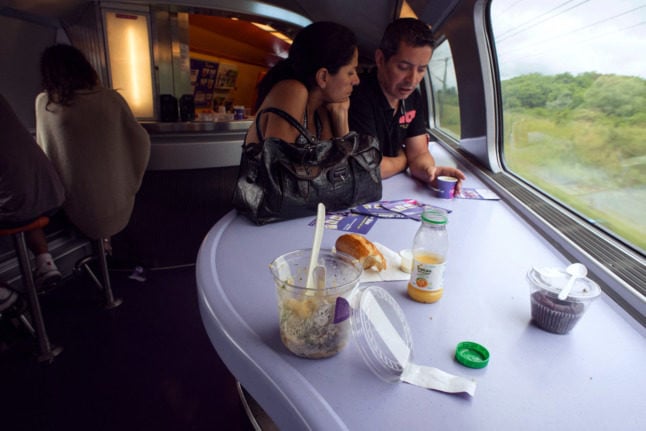Several riders had a near miss crossing a railway line after the safety barriers had come down during Sunday's Paris-Roubaix one-day classic cycle race.
The incident has prompted French rail chiefs SNCF to file a formal legal complaint.
A TGV (high speed train) passed a few seconds later, although by that point a police motorcycle was controlling the pass and had stopped the remnants of the peloton.
One rider from the Belgian Lotto team was clipped by a barrier which came down as the peloton was passing, about 87 kilometres from the end of the prestigious Hell of the North cobbled classic.
Several riders decided to cross anyway before the train came, against race rules, before a policeman stopped the rest.
Once the train had passed they continued normally and rejoined the riders ahead, who had been slowed down by race organisers to wait for those delayed.
"It wasn't possible for the leading riders to stop sufficiently safely," said Guy Dobbelaere, president of the jury of race commissioners.
"The peloton was 10 metres away when the barrier started to close.
"By neutralising the race for a few moments to not penalise those who stopped, we respected the spirit of the rule.
In theory, those who pass when the barrier is down are thrown out of the race.
"This time, that would have been unjust in respect of those riders who weren't identified."
Back in 2006, three riders who were chasing a lone breakaway by eventual winner Fabian Cancellara were disqualified after crossing a railway line after the barrier was down.
Belgians Peter Van Petegem and Leif Hoste, as well as Vladimir Gusev from Russia, were fighting for the minor placings behind the Swiss star.
But that time, the barrier was already down when they arrived, around 10km from the end.
On Monday morning SNCF, which runs France's railways, announced that it had filed an official legal complaint over the incident after several riders crossed the tracks despite the barrier being down.
"Several riders deliberately crossed a level crossing, which is against all safety regulations," said a statement from the organisation on Monday.
"Millions of TV viewers were able to watch this unauthorized crossing which was extremely serious and irresponsible, that could have ended in tragedy.
"SNCF has decided to lodge a legal complaint and will leave it up to the investigation to determine who was responsible and we regret that such foolhardiness took place."
SNCF also pointed out that 29 people had been killed at level crossings in France in 2014, due to similar infractions.



 Please whitelist us to continue reading.
Please whitelist us to continue reading.
Member comments